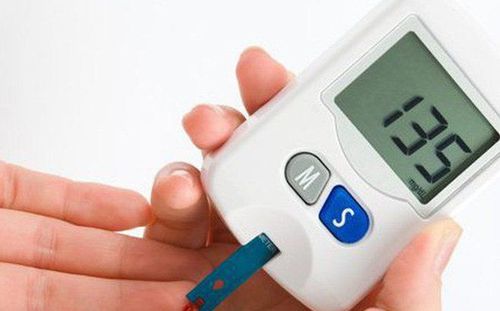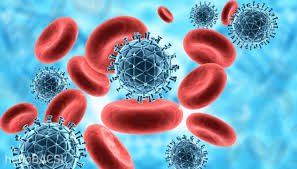Burning feet is a symptom experienced in many different diseases, most commonly diabetes and nerve damage. People who often experience hot feet should go to the doctor for timely treatment.
1. What is burning feet?
Burning feet is a phenomenon in which the feet feel hot, painful, and uncomfortable at various levels, from mild to severe. This feeling usually occurs in the feet, sometimes extending to the ankles or calves.
2. Which diseases cause burning feet?
2.1. Diabetes
Diabetes can increase the amount of sugar and fat in the blood. Over time, this can damage nerves, causing a burning sensation in the feet and hands.
Therefore, people with diabetes should inform their doctor if they experience early symptoms such as tingling, numbness in the fingers and toes. At the same time, you also need to check your blood sugar regularly to ensure good blood sugar control.
2.2. Peripheral neuropathy
Peripheral neuropathy is damage to the nerves that connect the spinal cord to the arms, legs, hands, and feet. The most common cause is diabetes. In addition, there are other causes such as cancer chemotherapy drugs, kidney failure, autoimmune diseases (including rheumatoid arthritis), toxic chemicals, infections, and nutritional problems.

2.3. Alcohol abuse
Alcohol abuse can cause a variety of health problems, including damage to the nerves that connect to the feet. This can cause tingling or burning sensations in the feet for months or even years. If you quit drinking, the symptoms will improve and prevent further damage.
2.4. Athlete's foot
Athlete's foot is an infection caused by a type of fungus that grows in the moist areas between the toes and on the soles of the feet. It is common in athletes. The disease often causes a tingling, itching, or burning sensation in the feet. This fungus thrives in damp shoes, socks, and locker room floors. Symptoms can be reduced with antifungal medications..
2.5. Vitamin B12 deficiency
Vitamin B12 is essential for maintaining nervous system function. Vitamin B12 deficiency is common in vegetarians, the elderly, people who have had weight loss surgery such as gastric bypass, and alcoholics.
2.6. Chronic kidney disease
Chronic kidney disease is common in people with diabetes and high blood pressure. This disease causes the kidneys to gradually lose function, causing fluid retention and nerve damage, including in the feet, causing a burning sensation.

2.7. Tarsal tunnel syndrome
Tarsal tunnel syndrome causes damage to the tibial nerve, which provides sensation to the sole of the foot. This causes pain, numbness, tingling, or burning in the feet. This nerve can be damaged by causes such as trauma, arthritis, bone spurs, …
2.8. Polyneuropathy
Polyneuropathy causes a stabbing, burning, or itching sensation in the feet. The feeling is stronger at night or at rest, in hot or cold temperatures. The disease often occurs in people with diabetes, and sometimes the cause is unknown.
2.9. Hypothyroidism
Hypothyroidism is a condition in which the thyroid gland does not produce enough hormones for the body. This can cause symptoms such as fatigue, constipation, sensitivity to cold, forgetfulness, and decreased libido. In addition, hypothyroidism can also cause a burning sensation in the feet. The cause of burning feet in people with hypothyroidism is not fully understood, but it may be due to edema, which puts pressure on the nerves.
2.10. Amyloidosis
Amyloidosis is a condition in which an abnormal protein is produced in the bone marrow. As levels increase and accumulate in organs, it can cause symptoms such as fatigue, weakness, thickened skin, easy bruising, purple patches around the eyes, and swelling of the ankles and feet. Swelling can put pressure on surrounding nerves, causing tingling and burning sensations in the feet. The disease cannot be cured but can be treated to reduce symptoms.
2.11. Neuromuscular pain
Neuromuscular pain can occur when blood vessels do not expand or contract properly. It causes a sensation of heat, redness, swelling, and burning in the feet and hands. This feeling usually lasts for several minutes to several days each episode. To reduce symptoms, you can use medications and creams as prescribed by your doctor.
2.12. HIV and AIDS
About 1/3 of people with HIV or AIDS have nerve damage. The virus itself or medications are the cause of nerve damage. People with HIV/AIDS are also more likely to develop diseases such as herpes, tuberculosis, and oral thrush. In addition, patients may experience stiffness, tingling, numbness, and burning in their toes and soles.

2.13. Contact dermatitis
Detergents, soaps, cleaners, waxes, and other chemicals can easily irritate the skin, causing contact dermatitis. The disease is common in healthcare workers, florists, hairdressers, mechanics, and cleaners. Allergic reactions usually occur within a few hours or longer, due to chemicals that corrode the skin. In this case, patients should see a doctor for appropriate treatment.
Burning feet is a symptom experienced in many different diseases, most commonly diabetes and nerve damage. However, to get an accurate diagnosis and treatment, patients need to be examined by a specialist.
Please dial HOTLINE for more information or register for an appointment HERE. Download MyVinmec app to make appointments faster and to manage your bookings easily.
Reference source: webmd.com
To arrange an appointment, please call HOTLINE or make your reservation directly HERE. You may also download the MyVinmec app to schedule appointments faster and manage your reservations more conveniently.








